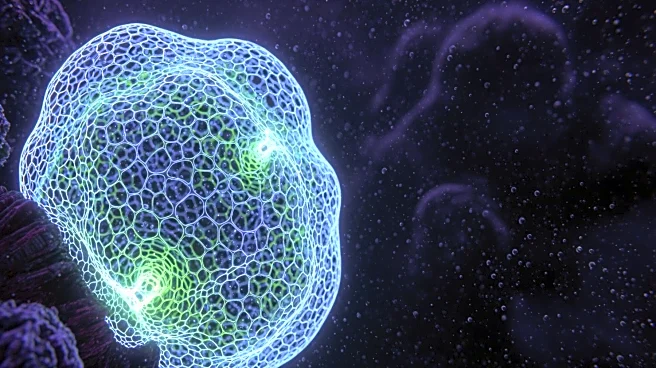What's Happening?
Researchers at the Technion - Israel Institute of Technology have discovered that the aging spleen creates a toxic environment that weakens T cells, a crucial component of the immune system. The spleen, responsible for breaking down defective red blood
cells and recycling their components, becomes less efficient with age, leading to toxic by-products that damage T cells. This environment forces T cells to adopt a self-protective state, reducing their iron uptake and impairing their immune response. The study suggests that controlled iron supplementation could enhance T cell activation in older individuals, as demonstrated in experiments with elderly mice.
Why It's Important?
The findings highlight a significant factor in the decline of immune function with age, which could have implications for improving immune responses in the elderly. By understanding the role of the spleen in immune aging, new strategies could be developed to enhance immunity in older populations, potentially improving responses to infections and vaccinations. This research could lead to targeted therapies that address age-related immune decline, benefiting public health and reducing healthcare costs associated with aging populations.
What's Next?
Future research may focus on developing clinical interventions based on these findings, such as iron supplementation protocols for older adults. Additionally, further studies could explore the broader implications of spleen aging on other aspects of the immune system and its role in age-related diseases. Collaboration with healthcare providers could facilitate the translation of these findings into practical treatments, potentially improving the quality of life for the elderly.
















